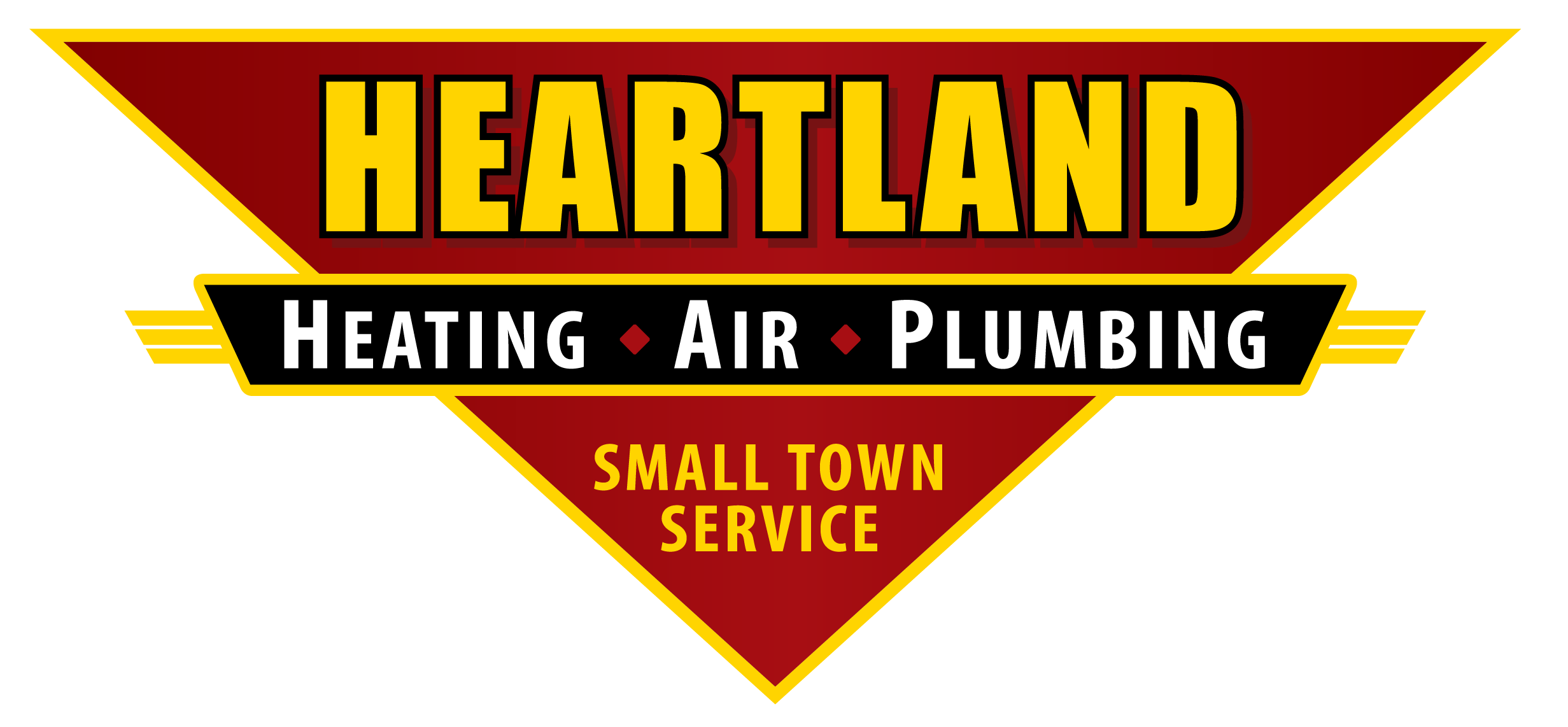Winter’s chill brings along many challenges, and one of the last things you want to deal with is frozen pipes in your home. Imagine coming home from work or returning from a holiday trip to the unfortunate sight of your pipes frozen solid.
It’s every homeowner’s worst nightmare, but with winter on the horizon in Southern Illinois, Heartland Heating, Air & Plumbing is here to share essential tips on how to prevent frozen pipes. Being prepared can make all the difference when the mercury drops.
What Can Happen If Your Pipes Freeze
First, let’s remember what all the fuss is about. When the temperature plummets and your pipes freeze, a series of very serious problems can occur.
- Burst Pipes: A frozen pipe often ruptures due to the expanding ice inside, exerting tremendous pressure. These cracks result in leaks when the ice thaws, causing significant home damage and costly repairs.
- Water Damage: A burst pipe leads to water leakage, infiltrating walls, ceilings, and floors. The ensuing structural damage fosters mold and mildew growth, requiring expensive and timely remediation.
- Loss of Water Supply: Frozen and burst pipes can severely disrupt your Murphysboro, IL home’s water supply, making daily tasks challenging, particularly during winter.
- Increased Energy Bills: Frozen water pipes might make your heating system work harder to compensate for the lack of hot water, resulting in higher energy costs.
Dealing with a frozen pipe and its associated problems is highly inconvenient, often requiring temporary home evacuation, interrupting routines, and coordinating plumbing and restoration services. Doing everything you can to prevent frozen pipes is the best way to avoid these situations.
Top Tips To Prevent Frozen Pipes In Your Home This Winter
So, how can you stop frozen pipes from wreaking havoc on your Carbondale area home? Here’s what the experts recommend when temperatures drop:
Keep Your Home Warm
Maintaining a warm interior is a fundamental step in preventing frozen pipes. Ensure your home is properly insulated and heated. Keep your garage doors closed, insulate walls, floors, and ceilings, and seal any gaps that may allow cold air to infiltrate your living spaces. Keep your thermostat set at a consistent temperature, even when you’re away, to help prevent temperature fluctuations that can lead to frozen pipes.
Let Faucets Drip
During freezing temperatures, allow faucets to drip slightly. A steady flow of water can help prevent pipes from freezing. This is particularly useful for faucets along exterior walls or in unheated areas of your home. You can also use a portable space heater to warm up those spaces.
Open Kitchen And Bathroom Cabinets
For sinks along exterior walls, open the cabinet doors to allow warm air to circulate through the pipes. This can be especially effective in bathrooms and kitchens, where the water pipes may be vulnerable to freezing.
Disconnect And Drain Outdoor Hoses
Before winter sets in, disconnect and drain outdoor hoses and shut off the water supply to outdoor faucets. Leaving hoses connected can trap water, which may freeze and damage the faucets or pipes.
Insulate Exposed Pipes
Pipes in unheated areas, such as attics, basements, and crawl spaces, are especially prone to freezing. You can insulate pipes using pipe insulation or heating tape. Taking this step can help maintain a consistent temperature around the pipes.
Use A Smart Thermostat
A smart thermostat can help you monitor and control your home’s temperature, even when you’re away. This can be particularly valuable for keeping an eye on your home’s heating and ensuring it remains at an appropriate level to prevent frozen pipes.
Have A Backup Power Source
If a power outage occurs during a winter storm, your heating system may be affected. Have a backup power source, such as a generator, to ensure that your heating system continues to function and produce warmer air during power interruptions.
What To Do If Your Pipes Freeze
Despite your best efforts, frozen pipes can still happen. When a pipe freezes, here’s what to do:
- Locate the Frozen Area: First, determine which pipe is frozen. You may notice reduced water flow or a complete absence of water in certain areas of your home.
- Keep Faucets Open: Keep the affected faucet open to allow water to flow when the pipe starts to thaw. Running water through the pipe can help melt the ice inside.
- Apply Heat: You can use various methods to gently thaw frozen pipes. Warm the pipe with an electric heating pad, hair dryer, or electric heat tape. Start from the faucet end and work your way toward the blockage. Never use an open flame or torch to thaw your pipes.
- Call a Professional: If you can’t locate the frozen area, if the pipe is broken, or if you’re unable to thaw the pipe, it’s best to call a licensed plumber for assistance.
Heartland is Here For You 24/7 With Emergency Plumbing Services
Keeping your home comfortable during the winter starts with taking measures to prevent frozen pipes. If you ever encounter a frozen or burst pipe issue, quick action is crucial.
At Heartland Heating, Air & Plumbing, we’re your reliable partner for all your plumbing repair needs. Our skilled technicians are ready to address frozen or burst pipe situations, ensuring your home remains warm and fully operational even in cold weather.
We offer 24-hour emergency plumbing services throughout the Murphysboro and Carbondale areas to minimize potential damage. These situations often happen overnight when the temperature is at its lowest. No matter when it happens, we’ll show up right away and get to work.
From repairing a frozen or burst pipe to managing complete repiping if necessary, we’re prepared for any scenario. Whatever the case may be, reach out to us when you need assistance; we’re just a quick click or phone call away!
Remember, proactive measures now make for a worry-free winter ahead.

